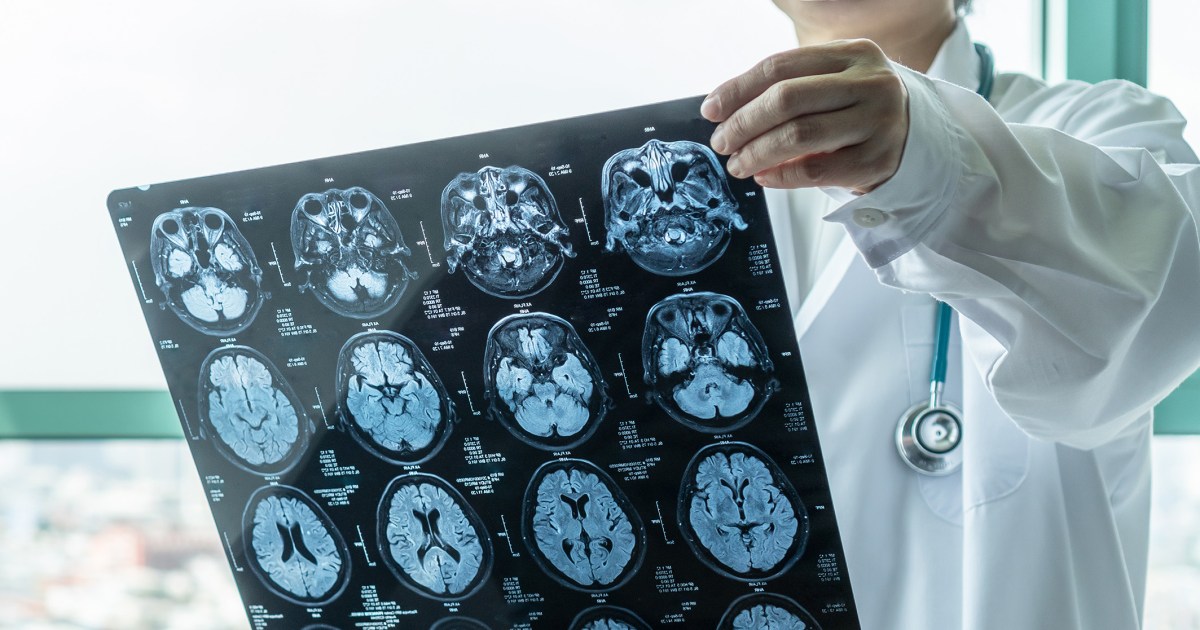
Depression after a traumatic brain injury, such as a concussion, may be a distinct condition, different from other types of depression, according to a study published Wednesday in the journal Science Translational Medicine.
The findings are a step forward in understanding how depression can be treated differently in people with traumatic brain injury, or TBI, who often do not respond to psychotherapy and medication.
The researchers are even proposing a separate name for the condition: TBI affective syndrome.
“We have believed for a long time that TBI after depression is somehow different, but we have never proven it,” said Dr. Shan Siddiqi, an assistant professor of psychiatry at Harvard Medical School, who co-led the study. “This is a distinct disease that warrants distinct treatments.”
The new research benefited from improvements in imaging technology. Previous research looking at how TBI affects the brain relied on less sensitive brain imaging technology, said Dr. Jesse Fann, professor of psychiatry and behavioral sciences at the University of Washington School of Medicine. As a result, some of the brain changes that occur post-TBI, specifically those related to mood, were missed.
Advances in neuroimaging “have helped us unlock some of the mysteries behind brain-related conditions, including depression,” said Fann, who was not involved with the new study.
Siddiqi and his team compiled results from five studies, all of which included a type of brain scan called a functional MRI, which measures and maps brain activity. The studies included scans from people with and without a brain injury, as well as people with depression following a TBI and people with depression and no TBI. The studies also included scans from people with and without post-traumatic stress disorder.
The researchers found that although the same brain circuits were associated with depression in people with TBI and those without, they appeared to be affected in opposite ways. For example, the same circuit may be overactive in someone with depression post-TBI and underactive in someone with depression and no TBI.
The same was true even for those who had depressive episodes prior to their TBI, suggesting that the altered circuitry may play a role in the development of depression following an injury.
“This depression is being driven by something different in the brain,” said Dr. Matthew Peters, an associate professor of psychiatry and behavioral sciences at Johns Hopkins Medicine, who was also not involved with the new research.
People with a TBI are nearly eight times more likely to have depression than people without one. They’re also less likely to receive any kind of treatment for depression, Siddiqi said. That may be because other issues, such as regaining speech or the ability to use a limb, take precedence when patients are evaluated for a recovery plan. But, he added, it also may be that traditional depression treatments — medication and psychotherapy — don’t work as well in people with TBI.
Siddiqi and his team noted that a type of therapy called transcranial magnetic stimulation, which stimulates nerves in the brain, could be a promising treatment for depression related to TBI when traditional therapies don’t work.
Peters agreed. “You can both turn on and turn off the neurons that you’re stimulating,” he said, noting that for this reason, transcranial magnetic stimulation could offer a more pointed treatment for either overactive or underactive brain circuits.
Moving forward, researchers will need to tease out which TBI patients are more likely to develop depression and which treatments will work best. Until then, one thing is clear, Fann said: “We cannot think about depression following TBI in the same way as we think about depression in other populations.”
CORRECTION (July 5, 11:47 p.m. ET): A previous version of this article misstated the number of studies in the new report that included functional MRI brain scans. All five of the studies included the scans, not four.
Follow NBC HEALTH on Twitter & Facebook.
Source: | This article originally belongs to Nbcnews.com










